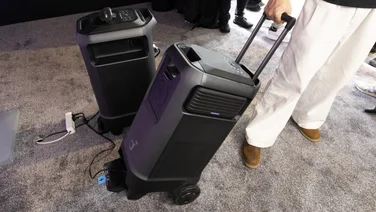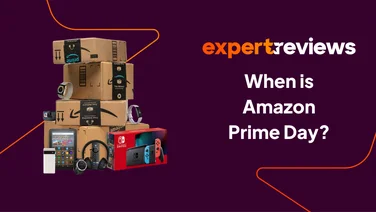To help us provide you with free impartial advice, we may earn a commission if you buy through links on our site. Learn more

Plusnet has commissioned a report to celebrate its 15th birthday, outlining how the internet will help shape our homes 15 years in the future.
For the report, The Centre for Future Studies pulled together an outline for how the house of 2027 will be markedly different and smarter than the homes we currently live in, with health monitoring, smart appliances and self-driving cars all making an appearance.
Bedroom
In the bedroom, Plusnet believes that smart books will “interact with the house’s 3D and virtual reality system, bringing to life what you read.”
We say, smart books may be able to interact with some entertainment systems, showing more detail and providing more information, perhaps even having a soundtrack and images to accompany the current passage, all pulled from the internet. However, virtual reality? So far, all attempts at making this have dramatically and stunningly failed, so we think it unlikely. Besides, if you’re reading, would you really want all of this distraction?
Bathroom
According to PlusNet, “Doctors will be able to give you virtual medical checks. Toilets will analyse waste for medical problems, such as colon cancer.”
We say, virtual doctor’s appointments already happen in limited trials, so there’s no technical barrier, more one of cost: for a doctor to properly check someone out, extra kit, such as a pulse monitor, are really required. It’s debatable if the NHS will provide this, so this service may be private or limited to rural areas.
As for smart toilets, we’d be interested to know how such a system will be able to filter out cleaning chemicals in the water to make an accurate diagnosis.
Roof
PlusNet thinks, “Power collected through solar panels and stored in backup resources to power house and car.”
We say, definitely. Solar power is clean and freely available, and solar panels are getting more efficient and cheaper. Not using this power would just be dumb. What the report misses is that smart appliances and smart grids will mean that you can make your washing machine turn on when there’s solar power being generated, rather than having to use (and pay for) national grid.
Bedroom
Plusnet says, “Clothes made with smart fabrics regulate your health. E-commerce will become F-commerce – online consumers will be able to enjoy a tailored shopping experience based on Facebook ‘Likes’.”
We say, smart fabrics are certainly possible, but we find it hard to believe that they’ll provide better value or features than natural fibres, such as silk, cotton and leather. There’s a reason that real fibres are more popular.
As for Facebook likes for shopping, this is certainly possible as more retailers tap into the Facebook infrastructure. Whether or not everyone wants to shop for clothes that their friends have, so that they all dress the same remains to be seen.
Kitchen
PlusNet says, “Smart surfaces identify what’s on them and have the ability to react accordingly – keeping coffee cups warm and iced-tea cold. Refrigerators will advise on recipes based on what’s in stock and create personal diets.”
Smart surfaces are certainly possible, but it’s likely that they’d be restricted to certain areas. After all, would you want part of your main counter to be hot because it’s just kept some coffee warm?
Fridges will be able to find out what’s in them thanks to RFID tags, and pulling recipes from the internet will be easy. However, it remains to be seen whether people actually want this.
Living Room
PlusNet believes, “All appliances connected through invisible networking system. Entertainment system creates life-like sounds, images and experiences to completely envelop you in near 4D experience.”
We say, everything will be networked and you’ll be able to start watching a piece of content on one device, then send it to a different room or mobile device to continue watching. Sound and picture quality will be massively improved and it’s likely that everything will be delivered over the internet.
We’re not sure what a ‘4D experience’ is, though. According to Wikipedia, four-dimensional space is a bit mindboggling.
Plusnet says, “See-through electronics, screens, touch panels and tactile displays deliver 3D holographic experiences. Contact lenses allow you to access infinite information resources instantly before your eyes.”
We say, it sounds a bit science fiction to us and how well would a see through display cope with bright light, for example. Displays are more likely to get thinner and have a higher resolution, and holographics could be used for some applications, but a traditional 2D display is still likely for a lot of things, such as working on a spreadsheet.
While it should be technically possible to create smart contact lenses, persuading people to wear them will be difficult.
Garage
Plusnet says, “Camera at entrance has facial recognition software, which is linked to criminal database. Car which is able to drive itself.”
We say, facial recognition is certainly possible, but any database that houses criminal faces is very unlikely to be opened to all and sundry. Besides, aren’t most criminals going to break in, rather than standing in front of a camera?
Cars that can drive themselves will be around in some fashion, although it may only be for certain journeys, such as the SATRE road train project.
The future of the internet
Where Plusnet has hit the nail on the head is with how important the internet will be. As a medium, it lets companies provide services easily to any internet connected home. With smart appliances able to tap into this, the internet will become important not just personally, but for running a household.
As Dr. Frank Shaw, foresight director at the Centre for Future Studies says, “The illiterate of the 21st century will not be those who cannot read and write, but those who cannot access the internet.”






